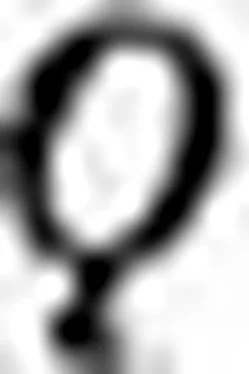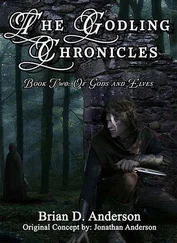Hilda Ellis Davidson - Gods and Myths of Northern Europe
Здесь есть возможность читать онлайн «Hilda Ellis Davidson - Gods and Myths of Northern Europe» весь текст электронной книги совершенно бесплатно (целиком полную версию без сокращений). В некоторых случаях можно слушать аудио, скачать через торрент в формате fb2 и присутствует краткое содержание. Жанр: История, на английском языке. Описание произведения, (предисловие) а так же отзывы посетителей доступны на портале библиотеки ЛибКат.
- Название:Gods and Myths of Northern Europe
- Автор:
- Жанр:
- Год:неизвестен
- ISBN:нет данных
- Рейтинг книги:5 / 5. Голосов: 1
-
Избранное:Добавить в избранное
- Отзывы:
-
Ваша оценка:
- 100
- 1
- 2
- 3
- 4
- 5
Gods and Myths of Northern Europe: краткое содержание, описание и аннотация
Предлагаем к чтению аннотацию, описание, краткое содержание или предисловие (зависит от того, что написал сам автор книги «Gods and Myths of Northern Europe»). Если вы не нашли необходимую информацию о книге — напишите в комментариях, мы постараемся отыскать её.
Gods and Myths of Northern Europe — читать онлайн бесплатно полную книгу (весь текст) целиком
Ниже представлен текст книги, разбитый по страницам. Система сохранения места последней прочитанной страницы, позволяет с удобством читать онлайн бесплатно книгу «Gods and Myths of Northern Europe», без необходимости каждый раз заново искать на чём Вы остановились. Поставьте закладку, и сможете в любой момент перейти на страницу, на которой закончили чтение.
Интервал:
Закладка:
Without the apples of youth, the Aesir began to grow grey and wrinkled, and at last Loki’s guilt was discovered, and he was threatened with death unless he righted the wrong that he had done. Accordingly he borrowed the falcon shape of Freyja and flew off to Thiazi’s abode. The giant was out fishing, so Loki changed Idun into a nut and flew off with it in his claws. Thiazi discovered the loss and started in pursuit, and Loki flew into Asgard only just in time. The gods were waiting with a heap of wood shavings, and they set fire to these as soon as Loki had flown over the wall, so that the fire singed Thiazi’s wings and he fell down inside the stronghold of the gods, and was easily slain.
His daughter Skadi came to avenge her father, and the gods offered her marriage with one of them as compensation for the slaying. She was permitted to see no more than their feet when she made her choice, and so it came about that she married Njord, thinking that she was choosing the handsome Balder. Odin also pleased her by throwing Thiazi’s eyes up into heaven, where they became stars.
The Winning of the Mead
Next we hear of the truce made between the Aesir and the Vanir, and how this led to the gift of inspiration coming to gods and men. When the two companies of gods met to make peace, they took a vessel and all spat into it, and from the contents they created the wise Kvasir, who was able to answer all questions. Kvasir however was killed by two dwarfs, who let his blood run into three huge vessels, and mixed it with honey to make a rich mead. Whoever drank of this received the gift of inspiration, and could compose poetry and utter words of wisdom. The malicious dwarfs, however, went too far when they killed a giant called Gilling, and his wife as well. The giant’s son, Suttung, took vengeance on them by putting them on a rock and leaving them there to drown. To save their lives they were forced to give him the mead, and it is for this reason that poetry is called ‘Kvasir’s blood’ or ‘ship of the dwarfs’.
The gods wished to win the precious liquid back from the giants, and Odin set out to do so. First he sharpened the scythes of nine men labouring in the fields to such good effect that in the end they quarrelled over the possession of his wonderful whetstone, and cut one another’s throats. Then he took their place, and hired himself out to their master, the giant Baugi, who was Suttung’s brother. The only wage he demanded was a drink of the wonderful mead. Baugi agreed to this, but when it came to the point, his brother would not let Odin have his drink. Then Odin persuaded Baugi to help him to bore a hole into the mountain where Suttung lived, and he crept in, taking the form of a serpent. He slept three nights with Suttung’s daughter, and persuaded her to give him three drinks of the mead. In three draughts he emptied all three vessels, and flew off in eagle form back to the Aesir, who had more vessels ready for him. He spat out the mead into them, all but a little that had been lost on the way – known as the poetaster’s share – and so it came about that poetry is now said to be the gift of Odin and the Aesir to men.
Thor’s Duel
Another tale is that of the giant Hrungnir’s duel with Thor. Odin and Hrungnir had a wager together, each insisting that he had the finer horse. Odin galloped off on Sleipnir and Hrungnir after him on his horse Goldmane, and Hrungnir inadvertently found himself inside the realm of the gods before he drew rein. The Aesir allowed him to drink from Thor’s great beakers, and he grew boastful, declaring that he was going to sink Asgard into the sea and carry off Freyja and Sif. Thor at this point came in, furiously demanding why a giant was sitting drinking among them, but Hrungnir claimed safe-conduct, and challenged Thor to a duel.
For this duel the giants made a clay man, called Mist-Calf, to support Hrungnir. Hrungnir himself had a sharp, three-cornered heart of stone, and a stone head, and he was armed with a stone shield and a whetstone. Thor came out with Thialfi to meet him, and Thialfi told the giant he had better stand on his shield, in case Thor attacked him from below. Then Thor bore down on Hrungnir with thunder and lightning, and hurled his hammer at him, while the giant threw his whetstone. The weapons met in mid air, and the whetstone was shattered, but one piece lodged in Thor’s forehead. The hammer went on to strike Hrungnir’s skull and break it in pieces. Meanwhile Thialfi had dealt with the clay figure without much difficulty. The only problem was caused by Hrungnir falling on top of Thor, for no one could move his great leg off the god until Thor’s little son, Magni, came up and pushed it away. Magni received the horse Goldmane as a reward. A seeress tried to sing spells to get the piece of whetstone out of Thor’s head, but he began to tell her how he had once carried her husband Aurvandil in a basket out of giant-land, and when one toe of Aurvandil had frozen, he had flung it up into the sky to become the star called Aurvandil’s Toe. She was so interested that the spell was never finished, and so the stone still remains in Thor’s head.
Thor’s visit to Geirrod
Another tale about Thor tells of his expedition to the realm of Geirrod. Loki had again been out flying in Freyja’s feather shape, and he was captured in the hall of Geirrod by the giant himself. Geirrod recognized the hawk by its eyes, and knew it to be Loki, so he shut him up and starved him for three months, until he promised to bring Thor to the hall without his hammer or belt of strength. Loki succeeded in this, but on the way Thor was warned of his danger by a friendly giantess, who lent him her magic staff, another belt, and iron gloves. First Thor was nearly drowned in the river Vimir, for Geirrod’s daughter stood astride the stream making it swell, until he struck her with a huge rock, and then climbed out with the aid of a rowan tree. Then he entered Geirrod’s hall, and sat down on a seat, but at once felt himself being raised to the roof. He forced the seat down with the aid of his magic staff, and so broke the backs of Geirrod’s two daughters, who had been pushing up his chair. Then he went up to Geirrod, who flung a ball of hot iron at him. Thor caught it with his iron gloves, and while Geirrod ducked behind a pillar, he hurled it through the pillar and the giant together. So Thor went back unscathed to Asgard.
The Treasures of the Gods
There is also the story of how the gods obtained their wonderful treasures. One day in a fit of mischief Loki cut off Sif’s golden hair, and Thor would have killed him if he had not found two cunning dwarfs to make new tresses of real gold for Sif, which would grow like natural hair. They also made Freyr’s wonderful ship and Odin’s great spear Gungnir. Loki then challenged two other skilful dwarfs to make three more treasures as good as these, wagering his head that they would not succeed. As they laboured in the smithy the dwarf working the bellows was stung persistently by a fly, but in spite of this they succeeded in forging a marvellous boar with bristles of gold, which could run faster than any steed and light up the darkest night. They also forged the great gold ring, Draupnir, from which eight other rings dropped every ninth night.
As they were making the third treasure, the fly stung the dwarf again, this time on his eyelid, and he had to raise his hand to brush it away. The third treasure was the great hammer Mjollnir, which would hit anything at which it was thrown and return to the thrower’s hand. Because of the interference of the fly, however, which was Loki in disguise, it was a little short in the handle. Nevertheless the gods held that the hammer was the best of all their treasures, and a sure weapon against their enemies, and they declared that Loki had lost his wager. He ran away, only to be caught by Thor and handed over to the dwarfs; they wanted to cut off his head, but Loki argued that they had no right to touch his neck. So in the end they contented themselves with sewing up his lips.
Читать дальшеИнтервал:
Закладка:
Похожие книги на «Gods and Myths of Northern Europe»
Представляем Вашему вниманию похожие книги на «Gods and Myths of Northern Europe» списком для выбора. Мы отобрали схожую по названию и смыслу литературу в надежде предоставить читателям больше вариантов отыскать новые, интересные, ещё непрочитанные произведения.
Обсуждение, отзывы о книге «Gods and Myths of Northern Europe» и просто собственные мнения читателей. Оставьте ваши комментарии, напишите, что Вы думаете о произведении, его смысле или главных героях. Укажите что конкретно понравилось, а что нет, и почему Вы так считаете.












